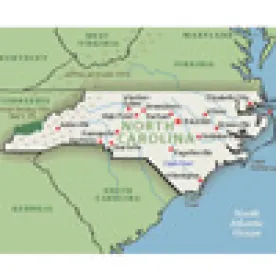Two recent decisions discuss the doctrine of vested rights in entirely different contexts. What might we learn from these cases about the doctrine of vested rights?
A divided Court of Appeals held in N.C. Assoc. of Educators v. State of North Carolina, ___ N.C. App. ___, (June 2, 2015) that contractual rights had vested for teachers who had attained career status and the General Assembly could not deprive these teachers of their vested rights by repealing the career status law. The dialogue between the judges concerned contract formation. The majority found that the repealed statute created contractual expectations in governmental employees. The minority concluded that unless a statute contained contract-like language, it cannot create a contract.
What does a case about teacher contract rights have to do with land use law? The doctrine of vested rights exists in land use law too.
Nine days after the Court of Appeals’ decision, a unanimous North Carolina Supreme Court held in Town of Midland v. Wayne, __ N.C. ___ (June 11, 2015) that a common law vested right existed and made the land significantly more valuable. But, the North Carolina Supreme Court’s discussion did not mention a contract.
What might be the organizing principle of the doctrine of vested rights? In every vested rights case, a legislative body has changed law to cure perceived defects in prior law – whether it is teacher tenure or establishment of an asphalt plant. The doctrine exists to ameliorate the tyranny of the majority, a principal concern of the Federalist Papers. For example, when majority rule changes land use law, courts must balance the “interests of the public as a whole and those of individual property owners and in many cases, the elements of good faith and bad faith and resort to equity and equitable principles.” Godfrey v. Zoning Bd. of Adjustment of Union Cnty., 317 N.C. 51, 62, 344 S.E.2d 272, 279 (1986).
The heart of the doctrine is fairness. Standards of fairness are imposed upon majority rule (against its will) by constitutional restraints. For government employees, does the change impair their contract with the government? For land owners, does the change violate due process rights?
Why care about the heart of the doctrine of vested rights? Understanding the heart leads to a better understanding of the myriad of arcane rules and principles applicable to the various species of vested rights. It is easy to miss the forest for the trees.




 />i
/>i

